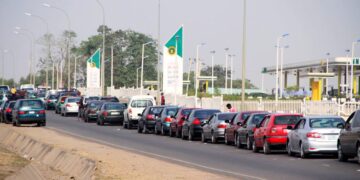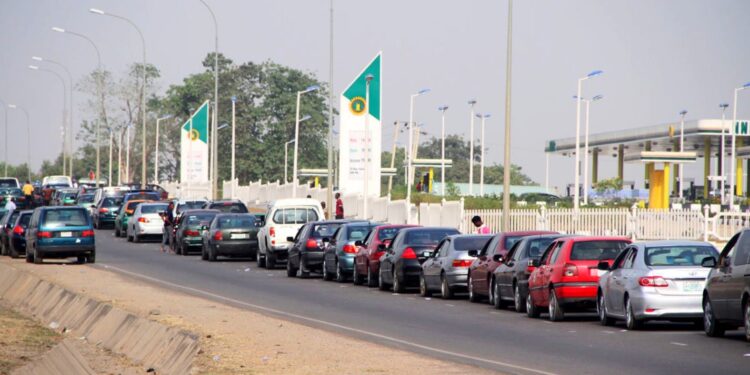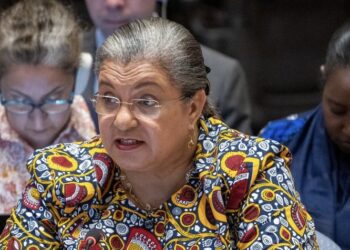By John Ikani
Nigerians are facing a difficult situation with both persistent fuel shortages and a sharp increase in prices set by the state-run oil company.
The Nigerian National Petroleum Company Limited (NNPCL), responsible for importing and distributing fuel, attributes the scarcity to its debts and the rising cost of fuel worldwide.
This has led to widespread disruption, with long lines at petrol stations across the nation. Commuters in Lagos are facing limited bus services and some have resorted to walking long distances due to doubled public transport fares.
On Tuesday, the NNPC announced a significant petrol price hike, from 617 naira to 897 naira per litre.
Although NNPC stations offer the cheapest fuel, most private petrol stations charge significantly more. The NNPC’s price increase triggers similar hikes at private stations, with petrol now reaching 1,200 naira per litre in some states.
Many petrol stations nationwide have closed, either due to running out of fuel or to adjust their prices.
In Abuja, most stations are open but have long queues, with some drivers resorting to sleeping in their cars overnight. There’s no guarantee of getting fuel even after a long wait.
A motorcycle rider in Kano expressed frustration over the situation, stating that most stations are closed for price adjustments and fuel is already being sold at inflated prices. Black-market traders are taking advantage of the situation.
The Nigeria Labour Congress feels “betrayed” by the price hike, claiming it agreed to the new minimum wage on the condition that petrol prices wouldn’t increase.
President Bola Tinubu’s removal of fuel subsidies last year has contributed to a severe economic crisis and cost-of-living protests.
Nigerians are now hopeful about the new Dangote Petroleum Refinery, which recently started producing petrol. However, it’s uncertain when this will translate to readily available fuel or lower prices.


































